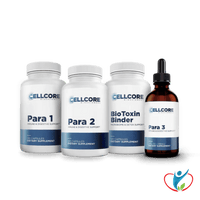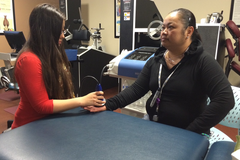What is folate?
Folate is a naturally occurring nutrient that is also known as vitamin B-9. This vitamin is important for the body to form healthy red blood cells and to support overall cell growth and function. Your body needs folate for your cells to divide. Together, these cells produce healthy skin, hair, nails, and form other parts of the body. Therefore, every person must have enough folate as a part of a balanced, healthy diet. Folate is naturally present in many foods, but especially in beans, peas, dark green leafy vegetables, eggs, and nuts. Other folate-rich fruits are lemons, bananas, oranges, strawberries, and melons. Eating a diet that is low in folate can lead to developing a folate deficiency. Feeling overtired, fatigued, or experiencing tingling and numbness in the extremities can all be symptoms of having a folate deficiency. People who experience an extended period of folate deficiency can develop a type of anemia, which is a condition that means the body doesn’t have enough red blood cells. Folate deficiency can also affect some people who have pre-existing conditions like celiacs disease. Since celiac disease prevents the small intestine from absorbing food, a person may eat enough folate, but their body cannot process and benefit from it.

What is folic acid?
When folate is created in a lab, it’s called folic acid. Because folate is so important, it is sometimes included as folic acid in fortified foods like rice, bread, cereals, and pasta. Folic acid can also be taken in the form of a pill or liquid as a dietary supplement. While it is recommended that all people get enough folate or folic acid in their diet, it is especially important for those that can become pregnant. Folate is very important during the beginning stages of pregnancy to help reduce the risk of birth defects within the spine and brain of the baby. This is why it is suggested that pregnant women and women who are trying to conceive should take a folic acid supplement.
Many prenatal vitamins have folic acid as one of their primary ingredients. Studies have shown folic acid may also reduce the risk of cleft palates, preterm births, heart irregularities, and more. Sometimes, folic acid can also be a supplement option to help those with depression or rheumatoid arthritis. It is important to note that folic acid can interact with certain medications and medical conditions. Those looking to check their folate levels or start taking a folic acid supplement should contact their doctor first to make sure it is safe.
How much folate or folic acid do I need?
It is recommended that all adults consume 400 micrograms of folate or folic acid per day. Unfortunately, it's difficult to get 400 mcg of folate naturally through diet alone. Eating fortified foods along with fruits and vegetables that contain natural folate or taking a folic acid supplement can help assure the proper amount of folate is ingested. The body can absorb more folic acid than folate that is naturally occurring in foods. When taking a folic acid supplement, we need a smaller amount to get the recommended daily amount. Adult women who are planning on pregnancy or could become pregnant are advised to take an increased amount of between 400 and 1,000 mcg of folic acid every day. Serious birth defects of a baby’s spine or brain usually occur very early in pregnancy, typically three to four weeks after conception. This is before many women know they are pregnant, which is why preemptive proper folic acid consumption is important. If a woman has already experienced a pregnancy affected by a birth defect, they may need more folic acid, in some cases, up to 4,000 mcg per day. Please consult with a healthcare provider to determine how much folate or folic acid is personally needed each day.
Sources
https://www.webmd.com/baby/folic-acid-and-pregnancy#1
https://www.medicalnewstoday.com/articles/219853
https://www.mayoclinic.org/drugs-supplements-folate/art-20364625
https://www.cdc.gov/ncbddd/folicacid/about.html












